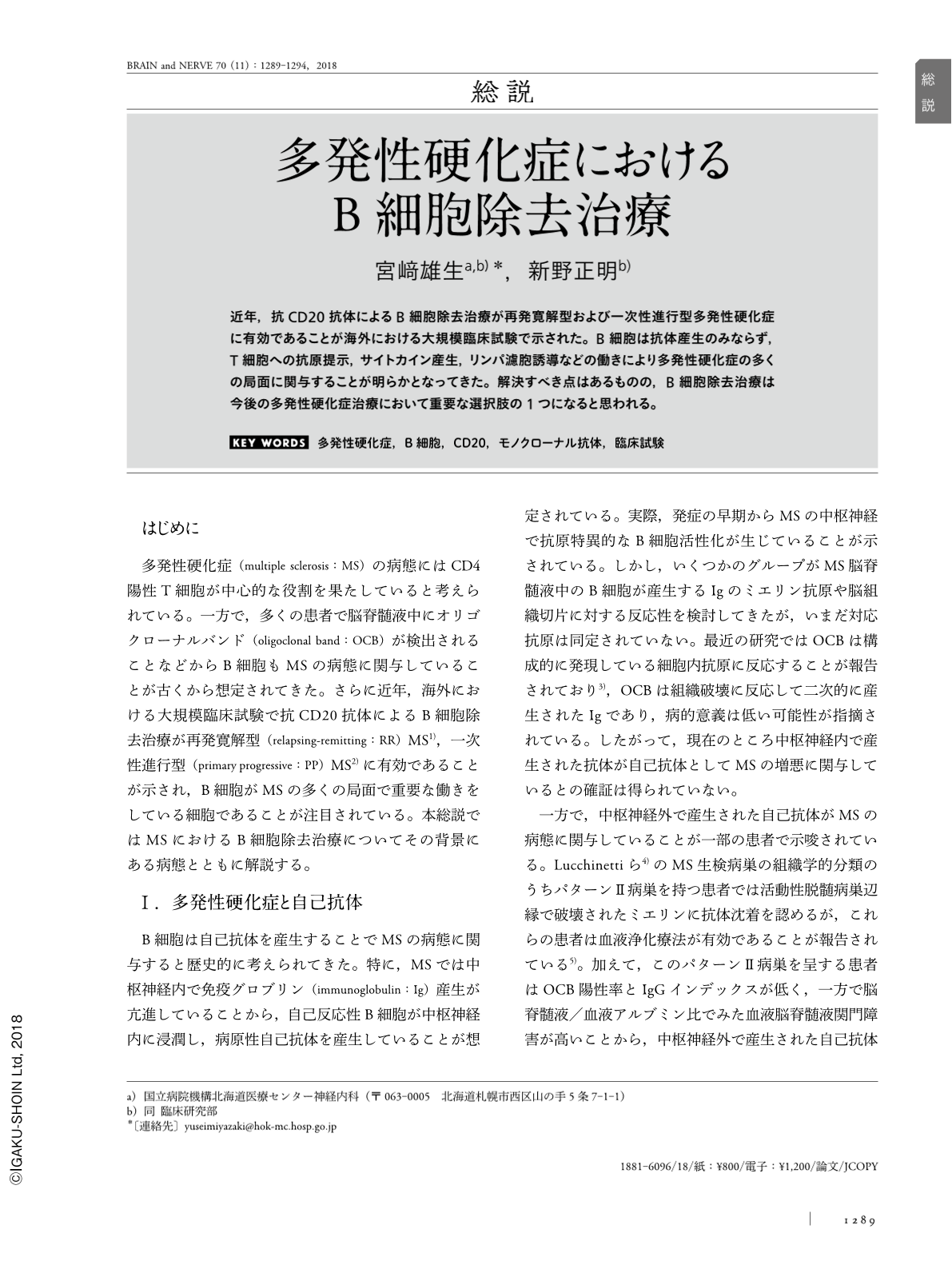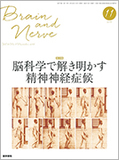Japanese
English
- 有料閲覧
- Abstract 文献概要
- 1ページ目 Look Inside
- 参考文献 Reference
近年,抗CD20抗体によるB細胞除去治療が再発寛解型および一次性進行型多発性硬化症に有効であることが海外における大規模臨床試験で示された。B細胞は抗体産生のみならず,T細胞への抗原提示,サイトカイン産生,リンパ濾胞誘導などの働きにより多発性硬化症の多くの局面に関与することが明らかとなってきた。解決すべき点はあるものの,B細胞除去治療は今後の多発性硬化症治療において重要な選択肢の1つになると思われる。
Abstract
Since the initial observation of increased immunoglobulin concentrations in the cerebrospinal fluid of patients with multiple sclerosis (MS) in the 1940s, B cells have been considered to participate in the pathology of MS through the production of autoantibodies reactive against central nervous system antigens. However, it is now recognized that B cells contribute to MS relapses by antibody-independent activities, including presenting antigens to T cells and releasing pro-inflammatory cytokines. In addition, the recent identification of B cell-rich follicle-like structures in the meninges of patients with MS suggests that pathogenic roles of B cells also exist at the progressive phase. Recently, large-scale clinical trials have demonstrated the efficacy of B-cell depletion therapy using ocrelizumab, an anti-CD20-antibody, in relapsing-remitting as well as primary progressive MS; these findings have led to the approval of ocrelizumab by the Food and Drug Administration and the European Medical Agency for treating these conditions. B-cell depletion therapy is an important treatment option for MS based on its favorable benefit to risk balance in relapsing remitting MS, and as it is the only drug that has currently been demonstrated to be effective in treating primary progressive MS.

Copyright © 2018, Igaku-Shoin Ltd. All rights reserved.


